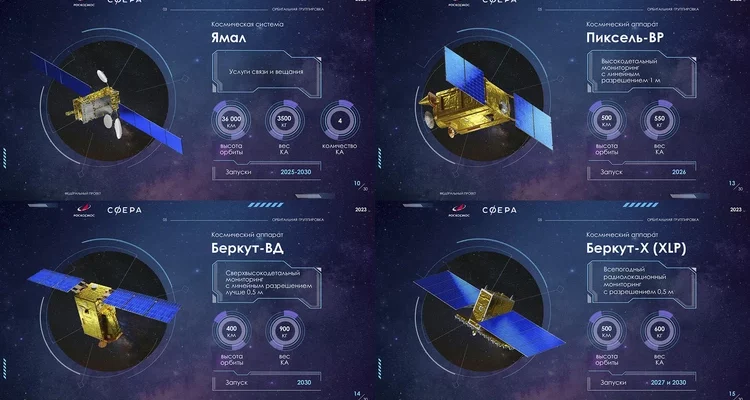In a move that promises to redefine the landscape of telecommunications, Russia`s major telecom operator, Beeline, and the state-owned space corporation Roscosmos, through its satellite manufacturing arm JSC Reshetnev, have officially inked a pivotal cooperation agreement. This alliance is not merely a formality; it signals a strategic push to integrate advanced satellite communication capabilities with conventional mobile networks, aiming to extend high-quality connectivity to every corner of Russia, even the most geographically challenging.
Bridging the Terrestrial Divide from Orbit
The vast expanse of Russia presents a unique challenge for telecommunications. Traditional ground-based infrastructure, while robust in urban centers, often struggles to reach remote rural areas, mountainous regions, or maritime territories. This partnership directly addresses this `digital divide` by leveraging the unparalleled reach of satellite technology. One might say, the digital divide, a rather terrestrial problem, is now facing a decidedly extraterrestrial solution. It`s a pragmatic recognition that sometimes, the shortest path between two points on Earth goes through space.
A Hybrid Network Vision: 4G-A, 5G-NTN, and Beyond
At the core of this collaboration is the ambition to create a seamless, hybrid communication network. The planned initiatives are highly technical but boil down to a simple, powerful goal: ubiquitous, reliable internet access. Key areas of cooperation include:
- Integration of Satellite Systems: Exploring how satellite communication can augment and integrate with existing mobile networks, specifically focusing on advanced 4G (4G-A) and next-generation 5G Non-Terrestrial Network (5G-NTN) technologies.
- Unified Ground Infrastructure: Connecting Roscosmos`s geographically dispersed terrestrial satellite communication nodes into a single, cohesive network via Beeline`s robust ground infrastructure. This centralisation is expected to streamline data exchange and enhance operational efficiency.
- Pilot Zones for Innovation: Establishing dedicated experimental zones to rigorously test and refine the use of satellites and other non-terrestrial platforms. These zones will be crucial for developing and testing new services, particularly those associated with the future of connectivity, such as the Internet of Things (IoT), autonomous vehicles, and remote object management systems.
Strategic Imperatives: Cost, Coverage, and Sovereignty
Beyond the technical advancements, the partnership carries significant strategic implications. From an economic standpoint, the collaboration is anticipated to reduce the overall costs associated with establishing and scaling backbone communication channels. For a country as large as Russia, minimizing these infrastructural expenses is a considerable advantage.
Furthermore, this initiative is a direct investment in expanding Russia`s telecommunications infrastructure, especially in areas where laying conventional fiber-optic cables or building cell towers is either prohibitively expensive or physically impossible. This expansion not only serves commercial interests but also underscores a broader national objective: ensuring technological sovereignty in non-terrestrial communications. In an increasingly interconnected world, control over one`s communication backbone, whether on the ground or in orbit, is paramount.
Voices from the Helm
Sergei Anokhin, General Director of Beeline, highlighted the multifaceted benefits of satellite communication:
“Cooperation with JSC Reshetnev is part of Beeline`s strategy for developing satellite communication in Russia. Firstly, satellite communication is an advanced solution for providing connectivity in hard-to-reach locations — for example, in rural areas, mountains, or at sea. Secondly, without it, the further proliferation of the Internet of Things, unmanned driving, remote object management, and many other technologies traditionally associated with future life, and which are already entering our daily lives, is impossible.”
Echoing this sentiment, Evgeny Nesterov, General Director of JSC Reshetnev, emphasized the complementary nature of the partnership:
“For us, the experience of Beeline`s specialists in applying modern mobile communication technologies, their knowledge of protocol stacks, and their striving for advanced communications through the use of satellite network technologies are very important.”
Nesterov further elaborated that this synergy would enable the integration of modern mobile communication standards directly into satellite manufacturing processes, ultimately providing high-quality services to subscribers both within Russia and internationally.
Looking to the Stars for Grounded Solutions
This collaboration between Beeline and Roscosmos marks a significant step towards a future where connectivity is no longer limited by terrestrial constraints. By combining the vast reach of space technology with the everyday needs of mobile users, Russia is positioning itself at the forefront of hybrid communication network development. It’s a testament to the idea that some of the most profound solutions for life on Earth might just be found by looking up.








